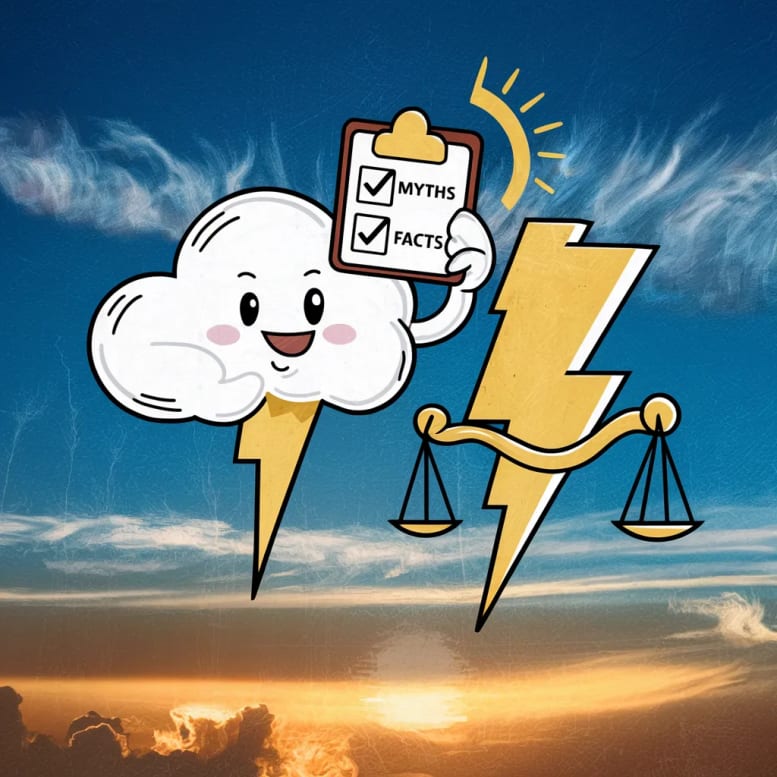Explore Quizzes
Understanding Climate Change: Causes, Impacts, and Solutions
Climate change is one of the most pressing challenges facing our planet. From rising sea levels to more extreme weather events, the impacts of climate change are being felt around the world.
This guide will provide a comprehensive overview of climate change, exploring its causes, its far-reaching impacts, and the actions we can take to address this global crisis.
1. What is Climate Change?
Climate change refers to long-term shifts in temperature and weather patterns. These shifts can be natural, but since the 1800s, human activities have been the main driver of climate change, primarily due to the burning of fossil fuels (coal, oil, and gas), which release greenhouse gases into the atmosphere.
2. The Greenhouse Effect: Trapping Heat in the Atmosphere
Greenhouse gases, such as carbon dioxide, methane, and nitrous oxide, act like a blanket around Earth, trapping heat from the sun and warming the planet. This process, known as the greenhouse effect, is natural and essential for life on Earth. However, human activities have increased the concentration of greenhouse gases in the atmosphere, intensifying the greenhouse effect and causing global warming.
3. Impacts of Climate Change: Far-Reaching Consequences
The impacts of climate change are already being felt around the world and are projected to become more severe in the coming decades. Here are some key impacts:
- Rising Sea Levels: As global temperatures rise, glaciers and ice sheets melt, adding more water to the oceans and causing sea levels to rise. This threatens coastal communities and ecosystems.
- Extreme Weather Events: Climate change is increasing the frequency and intensity of extreme weather events, such as hurricanes, droughts, heat waves, and wildfires.
- Disrupted Ecosystems: Climate change is altering habitats, disrupting migration patterns, and threatening biodiversity.
- Impacts on Human Health: Extreme heat, air pollution, and the spread of disease vectors are impacting human health.
- Water Scarcity: Changes in precipitation patterns are leading to water scarcity in some regions, while other areas experience more frequent flooding.
- Food Security: Climate change is impacting agricultural yields, threatening food security in many parts of the world.
4. Causes of Climate Change: Human Activities are the Main Driver
- Burning Fossil Fuels: The combustion of fossil fuels for energy (electricity, transportation, and industry) releases large amounts of carbon dioxide into the atmosphere.
- Deforestation: Trees absorb carbon dioxide from the atmosphere, so deforestation contributes to climate change by reducing the planet's ability to remove carbon dioxide from the air.
- Agriculture: Agricultural practices, such as livestock farming and the use of fertilizers, release methane and nitrous oxide, potent greenhouse gases.
5. Solutions to Climate Change: Taking Action Now
Addressing climate change requires a global effort to reduce greenhouse gas emissions and adapt to the already occurring impacts. Here are some key solutions:
- Transition to Renewable Energy: Shifting from fossil fuels to renewable energy sources, such as solar, wind, hydro, and geothermal, is crucial for reducing emissions.
- Energy Efficiency: Improving energy efficiency in buildings, transportation, and industry can significantly reduce energy consumption and emissions.
- Sustainable Transportation: Promoting public transportation, cycling, walking, and electric vehicles can reduce emissions from the transportation sector.
- Forest Conservation and Reforestation: Protecting existing forests and planting new trees helps absorb carbon dioxide from the atmosphere.
- Sustainable Agriculture: Implementing sustainable agricultural practices, such as reducing fertilizer use and improving livestock management, can reduce emissions from agriculture.
- Carbon Capture and Storage: Technologies that capture carbon dioxide emissions from power plants and other industrial sources and store them underground can help reduce emissions.
- Adaptation: Adapting to the impacts of climate change that are already occurring, such as sea level rise and extreme weather events, is crucial for protecting communities and ecosystems.
6. The Role of Individuals: Making a Difference
Individuals can play an important role in addressing climate change by making sustainable choices in their daily lives:
- Reduce Energy Consumption: Conserve energy at home by using energy-efficient appliances, turning off lights when not in use, and reducing heating and cooling needs.
- Choose Sustainable Transportation: Walk, bike, use public transportation, or drive a fuel-efficient vehicle.
- Reduce, Reuse, Recycle: Minimize waste by reducing consumption, reusing items, and recycling materials.
- Eat a Sustainable Diet: Reduce your carbon footprint by choosing plant-based foods, reducing food waste, and supporting local and sustainable agriculture.
- Advocate for Change: Support policies and initiatives that address climate change and encourage others to take action.
7. A Global Challenge, a Collective Solution
Climate change is a complex global challenge, but it is also a solvable one. By understanding the causes, impacts, and solutions, and by working together to reduce emissions and adapt to the changing climate, we can create a more sustainable future for our planet and generations to come.
Fun Facts About climate-change-and-impact
Climate Change Fun Facts:
- The Earth's average temperature has increased by about 1 degree Celsius (1.8 degrees Fahrenheit) since the late 19th century.
- The last decade (2011-2020) was the warmest on record.
- The concentration of carbon dioxide in the atmosphere is higher now than at any point in the last 800,000 years.
- Sea levels have risen by about 8-9 inches (21-24 cm) since the late 19th century.
- The Arctic is warming at a rate twice as fast as the global average.
- Renewable energy sources, like solar and wind power, are becoming increasingly affordable and accessible.
- Many cities and countries around the world have set ambitious goals to reduce greenhouse gas emissions.
- Individual actions, collectively, can make a significant difference in addressing climate change.
- Understanding climate change and its impacts empowers us to take action for a more sustainable future.
- There is still time to mitigate the worst impacts of climate change if we act decisively now.
Frequently Asked Questions
Climate Change FAQ:
1. What is the difference between climate change and global warming? Global warming refers to the long-term increase in Earth's average temperature, while climate change encompasses broader shifts in weather patterns, sea levels, and other climate-related factors.
2. What are the main causes of climate change? Human activities, primarily the burning of fossil fuels (coal, oil, and gas), which release greenhouse gases into the atmosphere, are the dominant cause of current climate change.
3. What is the greenhouse effect? Greenhouse gases, like carbon dioxide and methane, trap heat in the atmosphere, warming the planet. This natural process is essential for life, but human activities have intensified it.
4. What are the impacts of climate change? Rising sea levels, more frequent and intense extreme weather events (heat waves, droughts, floods, storms), ocean acidification, and shifts in plant and animal life are among the impacts.
5. What can be done to address climate change? Transitioning to renewable energy sources, improving energy efficiency, reducing deforestation, adopting sustainable agriculture, and enacting policies to limit greenhouse gas emissions are key solutions.
6. What is the Paris Agreement? An international agreement aimed at limiting global warming to well below 2 degrees Celsius, preferably to 1.5 degrees Celsius, compared to pre-industrial levels.
7. What can individuals do to help? Reduce your carbon footprint by using less energy, driving less, recycling, eating a more plant-based diet, and advocating for climate action.
8. Is climate change reversible? While some effects are irreversible, we can mitigate the worst impacts and adapt to the changes that are already happening.
9. How can I stay informed about climate change? Reputable scientific organizations, government agencies, and environmental groups provide reliable information.
10. What is climate justice? The recognition that climate change disproportionately affects marginalized communities and the need for equitable solutions.



